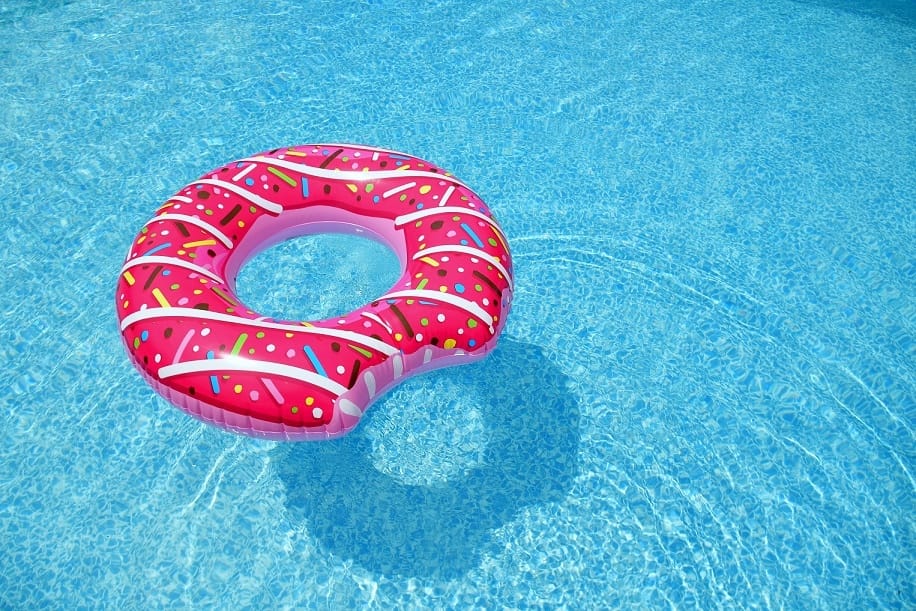The Type of Pool Salt You Should Use & Why
2020-08-20(19881)
Everybody likes jumping into a cool fresh pool on a hot summer day. But what’s more important is whether it is healthy and hygienic or not. There are various available chemicals in the market to disinfect pools. However, these chemicals might be hazardous for human health.
In this case, you may benefit from healthy and natural alternatives to make your pool safe and clean such as natural lake salt and solar salt. So, you may be one of a millionth or billionth homeowners with a pool in the backyard looking for a healthier way to disinfect it. And if you are considering using or switching to the pool salt, we suggest that you take a look at this article.
We will go through popular questions about pool salt like what is pool salt and what are the types of pool salt, and lastly what is the best pool salt for the disinfection of your pool.
What Is Pool Salt?
Often in-ground pools or above-ground pools use chlorine to disinfect pools from algae and bacteria. However unlike chlorine, pool salt is actually NaCI, meaning sodium chloride. It is basically a different form of table salt in a sense. Just as table salt has its additives to enhance its taste and elongate shelf-life, pool salt may consist of other additives.
Another difference between the two is their grain sizes. Pool salt usually comes in coarser and larger grain sizes.
Pool salt consists of two elements: sodium and chlorine. When pool salt is added to a pool, it dissolves into sodium ions and chloride ions. This chemical reaction causes the free chlorine ions to convert into hypochlorite acid. Hypochlorite acid has much less odor compared to chlorine tablets.
How does pool salt work? Pool salt devices produce chlorine from salt to provide hypochlorite acid which is the basis for pool sanitation. This process is done through an electrolysis method ensuring the hygiene of the pool.
What Are The Types of Pool Salt?

Natural pool salt is preferred to sanitize pool water without exposing your health to harmful chemicals. There is a huge variety of salt like solar salt, lake salt, rock salt, etc. But you can use only certain types to disinfect your pool.
Types of pool salt differ in their effectiveness, naturality and cost based on the way they are produced. What are the types of pool salt?
Solar Salt
Solar salt gets its name from its production method. It is acquired through the evaporation of seawater by naturally placing it in an open area and exposing it to the sun and wind.
The water evaporates, and it leaves behind a purified salt crystal that we can harvest- that’s what we call solar salt. Because solar salt is made from a brine, we can rid solar salt of insoluble impurities. Solar salt purity is typically greater than 99.5% sodium chloride that means the purity of solar salt is higher than that of rock salt. Evaporation is a more expensive process than just mining the salt directly out of the ground.
This production method produces natural high-quality, high-purity salt, ranging between 99.6% and 99.9% purity. In this case, it would be wiser to prefer solar salt as your pool salt since it’s produced by 100% natural method which allows low carbon foot print.
Vacuum Evaporated Salt
Another pool salt type is vacuum evaporated salt which has the process of evaporating moisture from a manufactured brine to form salt crystals. Freshwater is injected into an underground salt deposit where it dissolves the salt into a saturated brine. This brine is then pumped back to the surface where it is boiled and evaporated to create salt crystals.
This method of salt production is ideal for food-grade salt applications as it delivers high-quality, high-purity salt between 99.6% and 100% purity. However, this type of production consumes much energy than solar salt production and is not eco-friendly method in salt production.
It is also much more expensive than the other type of salt. That’s why, natural solar salt should be preferred instead of vacuum evaporated salt to make the world a better place.
Rock Salt
Rock salt is mined from underground salt mines and we use it as we find it, with little processing. That’s why, it’s also the lowest cost form of salt, and therefore, it’s what’s most commonly used in deicing.
Rock salt has low purity mostly varies between 95% and 99% sodium chloride depending on which mine it comes from.
Rock salt has some natural impurities that are present in the mineral itself. These impurities are typically a few % of insoluble matter which is largely calcium sulfate.
If you have a concrete pool, the mineral contaminants in the pool salt can stain your pool if the concrete pool has plaster or exposed aggregate.
If the pool salt you use has many impurities in it, it will take longer to dissolve. In this case, you may add the salt in several doses to help it dissolve one at a time.
The real advantage to solar salt is in applications where rock salt’s insoluble are a problem.
What is the Best Pool Salt?
There are a considerable amount and variety of pool salts of different brands in the market. But how do you know which one is the best pool salt to decently disinfect your pool?
If you learn what is important when buying pool salt, you can get the best pool salt you need. The important points to keep in mind when shopping for pool salt are:
● To prefer a pool salt with high purity; therefore, we do not recommend low quality rock salts for pool sanitation
● To calculate how much pool salt you need to disinfect your pool
● To prefer an affordable product based on cost-benefit analysis; you should not spend too much money than you need to.
● To consider how your pool salt effects, the balance of our World. You should pick eco-friendly production of solar salt, instead of high energy consuming vacuum salt production.
Turkey’s trusted salt supplier Koyuncu Salt offers high-quality pool salt in different grain sizes, bag options, and additives to provide you with a safer and more hygienic swimming pool experience. Koyuncu Salt provides millions of tons of salt to customers worldwide every year. Koyuncu Salt utilizes natural solar salt production on Salt Lake in Turkey.
pool salt lake salt eco-friendly salt salt producer




